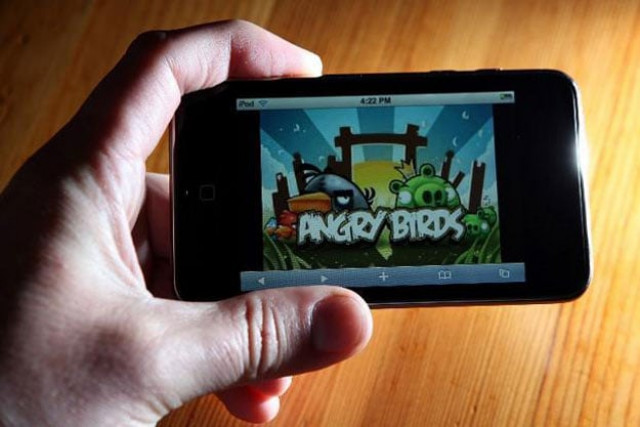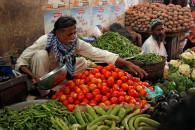Film festival: ‘The story you tell is what matters in making movies’
Students show short films made using cell phone cameras at festival held to mark end of 10-day workshop

‘Angry Birds’, which started in 2009 as a mobile game, has become one of the world’s biggest entertainment franchises. Photo: AFP
She was speaking to The Express Tribune at film festival held at the centre on Monday to mark the end of the two-week festival. Short films produced by workshop participants were shown at the festival.
Nawaz, a 3rd year film making student at Beaconhouse National University, said her film, My Happiness, was shot at Mehmood Booti with a Motorola phone. It’s based on the idea of happiness and what it means to different people. She said there was no such thing as a happy ending. “What seems like an end of a story is the beginning of another,” she said.
Ashar Khalid, a second year NCA student, agreed with Nawaz. He said the workshop had taught him about the importance of the idea on which a film is based. “Technical stuff comes afterwards and is not most important for the success of a movie,” he said. Khalid produced a comic short film about daily experiences of an average Pakistani.
Musa Yawari, a second year film making student at the National College of Arts, showed the life of a prostitute in a movie shot with an iPhone 5 he had borrowed from a friend. The film, Mazdoorni (female labourer), tells the story of a woman who takes up prostitution to pay for her younger brother’s school tuition. One of her clients turns out to be the headmaster at her brother’s school. Yawari said the script for the film was written by one of his friends.
Hassan Zaidi, second year film and television student at NCA, got a standing ovation for his film titled Colours of Death. The film shows the process of colouring chickens sold in the pet market. He said many birds ended up dead in the process from the side effects of the dye. Those who survive havea lower than usual life expectancy, he added. He said he wanted to send out a message against the abuse suffered by these birds.
Duaa Malik, a third year student at University of Lahore, had based her short film on a traumatic personal experience of a rickshaw ride where the driver started masturbating in the middle of the ride. “I wanted to show the trauma experienced by women in public spaces when men around them act in inappropriate manners,” she said.
The workshop was conducted by Till Passow, a German filmmaker. Speaking to The Tribune, he said one needed to be careful in selection of themes for movies to be shot with a cell phone camera. “It’s a cell phone camera. You cannot shoot a movie comparable to those produced in the Hollywood with the device,” he said. “I enjoyed guiding the participants about selecting the right kind of themes for their movies,” he added.
Among Passow’s corpus of work are two documentaries made in Pakistan. Mast Qalandar is about the shrine at Sehwan Sharif. Mor Sahib – The Crocodile Saint – is about Manghopir shrine in Karachi. Passow had won a Golden Gate Award for Mast Qalandar.
Naurin Zaki, the Annemarie-Schimmel-Haus director, said she had known Passow for several years. “He told me about a similar workshop he held last year in Karachi. I was impressed and asked him to do it here too,” she said.
Published in The Express Tribune, October 14th, 2015.



















COMMENTS
Comments are moderated and generally will be posted if they are on-topic and not abusive.
For more information, please see our Comments FAQ